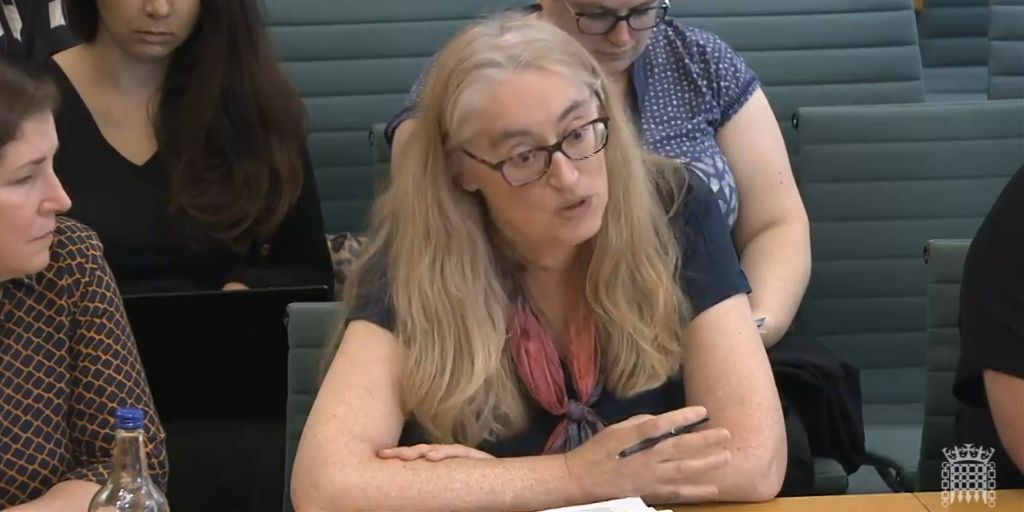Consulting on Family Law Culture Change in 2023

For many participants in a family dispute, almost any alternative is better than ending up in court. Caroline Bowden hopes the government will succeed in getting this message across.
*This article was originally written by Caroline Bowden for the New Law Journal*
In Brief
- The government is consulting on the earlier resolution of private family law arrangements and is expected to stress the importance of seeking agreement outside of the courts.
- Any moves towards non-court dispute resolution in family matters are to be welcomed, although much will depend on the details of how the system will be rolled out and embedded in practice.
The author is cautiously optimistic about a government consultation on plans to radically alter the pathway for couples experiencing separation. The Ministry of Justice is hoping for a culture change, shifting people from looking at court as the inevitable destination when there is conflict over the arrangements for children, finances or housing. Instead, it wants court to be the last resort, to be used only for those who need it and when the possibility of any other suitable option has been exhausted.
There are obvious cases that have to go to court. Every civil society must provide a backstop for situations that cannot be resolved any other way. In England and Wales, this system even shapes our laws too. We often consider the adaptability of case law to be one of the key strengths at the heart of how we ‘do’ justice.
There is another core part of how we ‘do’ justice that probably has more downsides than upsides. Every law student is likely to remember having to study the difference between adversarial and inquisitorial jurisdictions. Ours is a firmly adversarial one: litigants pitch their narrative and reasoning to a judge who decides between them. It is not the judge’s role to give much, or any, assistance or credit to the weaker or more disadvantaged party. This can be highly effective for lawyered-up, wealthy commercial disputes: it is a far less appropriate forum for family cases. These participants were once couples and crucially often remain parents. It is a bruising and brutal place if there are still hopes to keep a functional and cooperative relationship going with one another thereafter.

There is no suggestion in the consultation that we are moving away from the adversarial system outright. This consultation is more a recognition of how the message needs to be seared into our society, that almost any other alternative is better than ending up in court, unless truly unavoidable. Judges will be expected to quiz the litigants at all hearings as to their views on resolving matters elsewhere. There is however separately a pilot for children matters that is going further, with the judges in two regions taking on a much more involved, quasi-inquisitorial role. The results are already positive.
The extent to which the law even needs to be involved at all may depend on whether there are disputes between parents about the arrangements for their children, or financial disputes.
Children disputes upon separation should stop being framed as legal disputes altogether, though some will have to end up in court. Most parents do not need to be there, so need to be diverted elsewhere when appropriate and safe to do so. The message into our culture must be that parents should, where possible, deal with their responsibility and authority, given by their parental status, to work out matters privately, with or without other helpful services. In other words, the ethos is to stop as many parents as possible from seeing themselves as legal combatants.
For finance matters it is somewhat different. Divorcing couples will be likely to want a court order, to settle their arrangements into a clean break order which cannot be unravelled. This can, of course, be done by settling outside of court and then uploading documents to the portal for a judge to evaluate, rather than by needing actual court time.
The government’s consultation is entitled ‘Supporting Earlier Resolution of Private Family Law Arrangements’ and the deadline to respond is 15 June 2023.
There was a sister consultation, now ended, from the Family Procedure Rule Committee, which covered similar ground. It asked more specific and detailed questions, which hinted at how the primary legislative changes may embed themselves within the process and practice rules. Though it appeared quite, niche, the rules will be important in turning the theory and intent into reality.
The government’s consultation looks at change, possibly some of it via primary legislation, in three main areas:
- a requirement for parents to attend parenting programmes before going to court, instead of, as now, an optional referral by a judge once court proceedings have started.
- making would-be litigants consider mediation before issue and at every stage thereafter. This extends in some circumstances to other forms of non-court dispute resolution (NCDR).
- Introducing more specific powers for judges to consider costs orders on couples who have not made reasonable attempts to settle elsewhere, in finance cases especially.
On launching the consultation, the government also announced that there would be an extension of the current mediation voucher scheme until April 2025. The statistics for the scheme so far have been really positive, with 69% of participants reaching a whole or partial agreement away from court, out of the 7,200 clients who have claimed the voucher to date.
Whilst I am optimistic about these reforms, my caution comes from the fact that ‘the devil is in the detail’. Most of the fine-tuning will have to be fleshed out later, in the form of protocols, practice directions, government messaging and so on.
I doubt if many would argue about the positive benefit to any parent, separated or not, in attending a well-run parenting programme. Those who do attend are likely to adopt a more positive mindset towards mediation too. However, whether there will be the resources to provide courses in a timely fashion before mediation starts is another matter. The mediation service cannot police this.
What has caused major concern is the proposal for ‘compulsory mediation’. That is just an oxymoron. Mediation has to be voluntary and this is at the root of its structure and function. There must therefore remain a discretion not to attend, which of course will happen in practice. Non-attendance will then need to be explained further down the track, if matters end up in front of a judge.
What is curious about the consultation is that it does not say that attendance at the pre-mediation meeting, the Miam, (Mediation Information and Assessment Meeting) should be made compulsory for both participants. It is currently only compulsory for the would-be applicant to court. I expect it was missed because, by definition, both participants would have had to have attended a Miam for mediation to get underway, but it still needs to be explicit in the proposed legislation to follow.
A Miam is just a one-to-one meeting without the other party. The mediator offers a triage service, signposting people to other services and other forms of NCDR, as well as discussing and assessing for mediation. Mediators can also manage the expectations of an over-hasty litigant, especially to inform them if court will not give them the solution they are looking for anyway. Therefore Miam attendance is a useful standalone service and there must be a higher bar for non-attendance than for attending mediation thereafter.
What will be the consequences for those who say that they do not want to mediate, even when it is supposed to be compulsory? Every individual is free to exercise their right to walk away from it: mediators are not going to police this and have no power to force people into their offices after attendance at a Miam.
If people do slip through that net, then what happens next depends on the attitude of the judges or the officials who first assess their application. Ironically this may mean very little change from what judges are supposed to do already. The rules (Part 3 of the FPR) currently require a court to consider, at every stage in the proceedings, whether NCDR is appropriate. This includes taking into account:
- ‘whether a Miam took place;
- whether a valid Miam exemption was claimed or mediator’s exemption was confirmed; and
- whether the parties attempted mediation or another form of non-court dispute resolution and the outcome of that process.’
If the court considers that NCDR is appropriate, it also has current powers to direct parties to attend Miams and ‘where the parties agree’, to direct them to an NCDR service between hearings.
Many within the family law world might quote Hamlet at this point: these rules are far more ‘honour’d in the breach than the observance’. One therefore wonders whether this consultation may lead to not much more than a re-boot of practices that should have been in place a decade ago.
The success of the proposed reforms may therefore lie in the interconnection of the law and the relationships: change must come from both the rules and via a shift in the working ethos of the judges. If they start asking tough questions at each hearing about whether NCDR has been attempted, this message should filter through to all those working in the wider system of what is expected and even to the separating couples of the future too.
So what about couples in conflict who assume that court is their natural destination? What can shift their thinking and actions? Most should be caught by new or existing nets, before having to look at facing possible court sanctions:
- The reforms, especially with greater education and awareness, should provide a cultural shift, so that the expectation would be to seek out non-court solutions at the first sign of a conflict.
- If they do not realise this initially, they should realise this on starting to complete a court application form. This will show that they need to provide proof of attendance at a Miam and/or mediation and/or other NCDR before going further.
- Solicitors have a huge roll to play as gatekeepers of their client’s settlement options. Sadly there are too many unenlightened solicitors who avoid looking at other options other than court. Until now, they would know that poor curation of their client’s journey would rarely be commented upon by the judiciary. If this changes, then so might their attitudes and their advice with all their clients, current and future.
- The litigants who make it through these nets may still settle out of court, having been steered in that direction during one of the stages in the proceedings.
The remainder (aside from those who for reasons of child protection and safeguarding issues need to be in court) are the ones who will be directly affected by any non-compliance with the proposed new rules. These litigants will have to justify their reasons for refusing mediation. It is not the job of the mediators to do this. The only information mediators can confirm to court is the time they spent with the participants.
For this to work across all income bands, legally aided mediation must be adequately funded. The voucher also covers only the first £500 of child mediation costs. This funding should extend to the Miam and financial mediation. Early legal advice should be brought back too, also adequately funded. This is especially important for supporting financial cases. It could even be full funding if it is by way of a loan which is refunded from the financial settlement, as it was before the LASPO cuts.
My optimism in the future changes is therefore tempered by not knowing how the system will be rolled out and embedded in practice. However, I do believe that it will be a help for appropriate separating couples to avoid court and be given a robust encouragement and incentive to consider mediation and other NCDR options instead.
* Disclaimer: The information on the Anthony Gold website is for general information only and reflects the position at the date of publication. It does not constitute legal advice and should not be treated as such. It is provided without any representations or warranties, express or implied.*
No comments